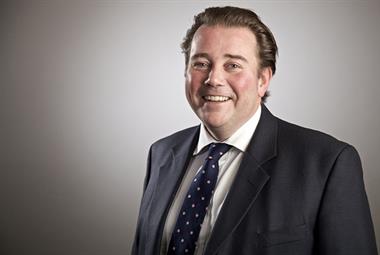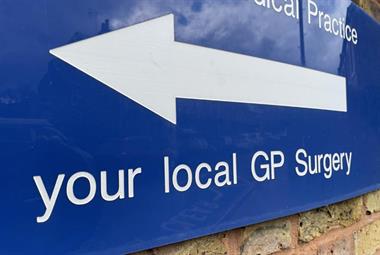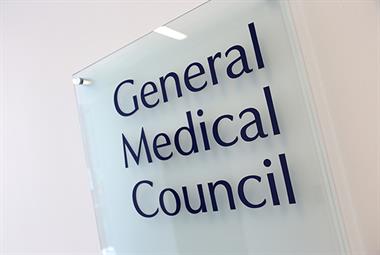How you become a GP trainer varies from deanery to deanery, so you should look at your local deanery website and contact them directly. You may wish to discuss the role with other trainers or colleagues in your area who have experience of this. You can be a salaried GP or a partner within a training practice.
If your practice is not a training practice you will need to go through the process of becoming a training practice. If you are setting this up yourself then ensure your practice manager and colleagues are fully committed to teaching and are willing to provide the time and support necessary to allow a registrar to flourish.
The training course
All deaneries require GPs to complete a course to become a trainer but the length of the course and requirements will differ from region to region.
In the North East and Cumbria Deanery, intending trainers need to show that they understand the principles of audit and submit some of their own video consultations. Once accepted onto the course there are 4-5 mandatory training days that cover all aspects of training.
The majority is group work and a lot of the course covers educational theory and principles of adult learning. The course also involves six tutorials with a registrar observed by an experienced trainer where detailed feedback on the tutorial you have undertaken is provided. This is an extremely valuable and enjoyable part of the training course.
The course also provides the training on how to use the Fourteen Fish eportfolio as a supervisor and undertaking the mandatory workplace-based assessments that the registrar needs to acquire their CCT.
There is then a dissertation to complete based on a significant event that occurs during your supervised sessions.
The final hurdle is a short interview with clinicians and non-clinicians. The whole process takes approximately 18 months.
What does being a GP trainer involve?
As a GP trainer you will be allocated be one or more registrars and act as their educational supervisor (ES), clinical supervisor (CS) or both.
As their ES you will oversee their training for at least three years and they will likely spend six months with you at the start of their training. You will be responsible for completing their six-monthly educational supervisor’s reports (ESRs). There is a fee paid to you for completing this report.
If a registrar is assigned to your surgery for six months, you will be their CS.
From a day-to-day point of view, it is important that you are a source of support. Your GP registrars will vary widely in their knowledge, skills and attributes and you have to be alert to this and be as flexible as possible in your approach to helping them develop.
A two-week induction is essential to ensure they familiarise themselves with all aspects of the surgery and get to know the wider healthcare team. There is more advice on induction for GP registrars here.
Ideally, you should supervise your GP registrars' surgeries, but it is a good idea for other GPs to supervise them occasionally so they can experience different approaches to how cases are managed.
Some registrars will require more supervision than others. You will have to establish your registrar's learning needs within the first couple of weeks (although this is likely to be a fluid process) and agree on an educational contract that covers mandatory aspects of the GP curriculum but also addresses their agenda.
Your registrar may need to speak to you mid-surgery for help, support or review of a patient. I normally have 20 minutes blocked out in preparation for this and also the post-surgery debrief.
One-to-one tutorials
You will need to provide the registrar with a one-to-one tutorial on a weekly basis if they are full time. This is often a session, or pro rata if the registrar is less-than-full-time.
This is an opportunity for you both to develop your relationship and discuss all aspects of general practice, whether that be cases that they wish to discuss, their mandatory assessments, helping prepare for exams or future career planning.
This is your opportunity to show your passion for the career but also provide a realistic insight into primary care. The tutorial should ideally be registrar-led and they should set the agenda unless you feel that there are any issues that need addressing first.
Workplace-based assessment
The e-portfolio is the responsibility of the registrar. They must populate this with reflective log entries and complete their mandatory workplace-based assessments (WPBAs) of which there are many and each specialty training year has set requirements as laid out by the RCGP.
Your role will be to validate log entries to ensure they show adequate reflection and grade their WPBAs. This should be done within your weekly tutorial. You may find yourself reading log entries in your own time but I try to build this into my working day if possible.
The benefits of being a trainer
There are many benefits of being a trainer. For the practice it means you have a continuous stream of new doctors (every six months) bringing new skills, ideas and positive influences.
The GP registrars are part of your workforce so provide extra appointments and take a fair share of administrative work. They can also help with quality improvement projects (QIPs), significant event analysis and teaching medical students.
For the GP trainer, becoming a trainer allows you to develop educational skills. You will also meet other trainers locally via your trainers' group, attending trainers conferences and educators conferences allowing you to develop these skills and new ways of training.
Becoming a trainer also open new doors, for example teaching within a university, working within the deanery, becoming involved with GP recruitment, or even becoming a training programme director.
It also helps you keeps up-to-date clinically and provides you with opportunities to learn new skills from your registrars. There is also the reward of seeing a registrar develop over time and become a GP.
Being a trainer does require you to be organised and your colleagues must appreciate the responsibilities that you are undertaking in taking on this role.
You will also need to engage with an annual trainer appraisal (often undertaken by another local trainer) and your training programme will undertake a trainer development meeting on a rolling cycle to ensure that you are coping with your role.
What skills does the role require?
The following list is not exhaustive, but based on my own experience these are some of the skills and traits I believe a GP needs to be a successful trainer.
- Enthusiasm
- Passion for teaching
- Friendly and approachable
- Ability to recognise own limitations
- Able to remain objective
- Patience
- Willing to recognise own mistakes and learn from them
- Ability to reflect.
- Ability to listen
- Empathic and sensitive
- Good communication skills.
- Ability to problem solve
- Ability to stay positive and motivate registrars
- Good time management
- Organisation
- Good team player
- Respect for other people’s opinions
- Ability to keep up to date
- Ability to provide appropriate challenge
Due to the increasing number of GP registrars different options may also be available for GPs to be involved with some training without having to undertake the full intending trainer's course and all the responsibilities that come with being a trainer. You will need to make enquiries with your local training programme to see what is available.
- Dr Singh is a GP trainer in Northumberland












.jpg)
